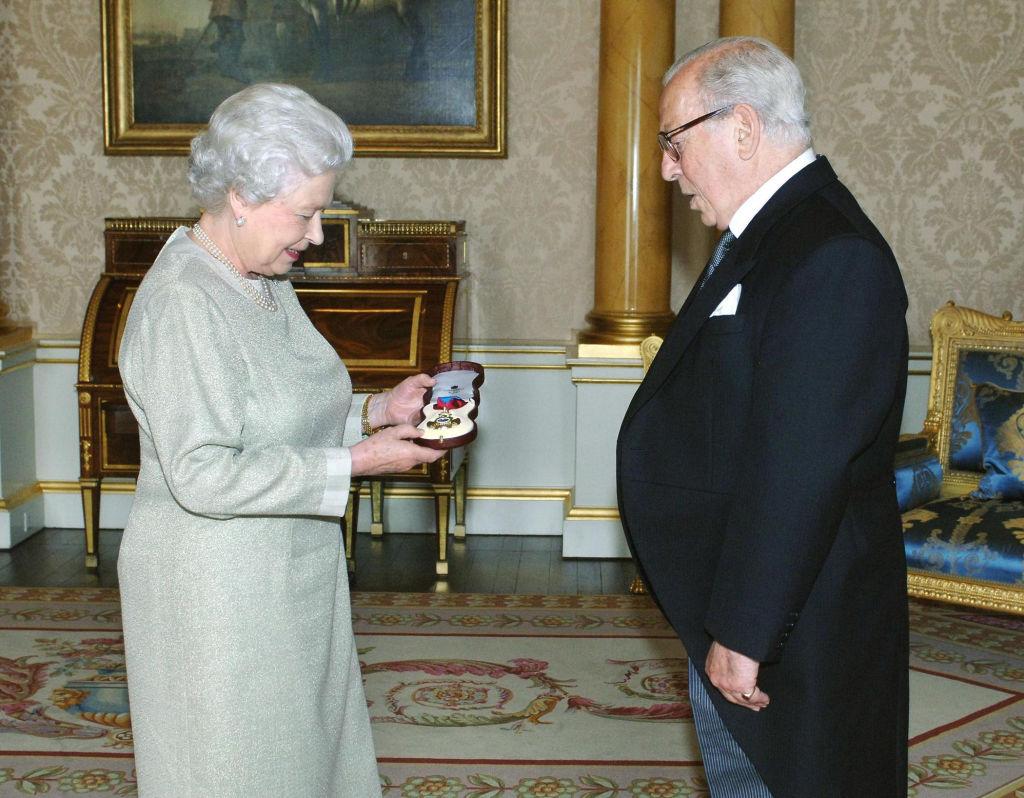
On 30 November 2019, with the death of Sir Michael Howard, we in the strategic studies community lost one of our outstanding leaders of the 20th century. Born into a well-connected stratum of British society in 1922, he had, as he readily admitted, a very fortunate life. He was educated at Wellington College and in 1940 won admission to one of Oxford’s more elite colleges, Christ Church, to read modern history.
In 1942 he volunteered for war service and was accepted into a distinguished infantry regiment, the Coldstream Guards. As a platoon commander he showed outstanding courage and leadership, winning a Military Cross for bravery in the Italian campaign when he led his platoon into an attack on a strongly held German position.
This period of service at the cutting edge of battle gave him a wonderful basis of knowledge of what soldiers could and could not do when bearing the stresses of war. As a result of this experience he had a much better eye than many of his contemporary colleagues in academia and journalism for judging the performance of armies, the people who serve in them and the people who command them.
After the war he returned to Oxford to complete his degree in history. He was then well placed to join with another Coldstreamer, John Sparrow, who later attained a high post at Oxford as head of All Souls College. They worked together on writing the history of the Coldstream Guards in World War II, published in 1951.
With this book behind him, Howard was able to gain a series of posts in history at King’s College London, where he developed support for the foundation of a separate war studies department. This initiative required boldness and a willingness to withstand attacks when he was at an early, and vulnerable, stage of his career. He proved himself equal to these challenges, partly because he knew from his war experience what it was like to weather storms, and partly because he was adept at finding well-placed and capable allies to give him the essential support on key committees and in gathering a resource base, especially the necessary funding. He won the day and founded what has become one of the most prominent departments of King’s College, and a leading centre of teaching and research on the global scene.
In parallel with his development of the Department of War Studies, Howard joined with several others to establish Britain’s first ‘international think tank’ in his field, the Institute for Strategic Studies, later the International Institute for Strategic Studies. Within a decade, it had achieved recognition worldwide as one of the leading bodies in the field of security policy analysis. For many years Howard was a council member of the institute, ultimately becoming its president.
In 1961 he published his celebrated history of the Franco-Prussian War, in which he was able to demonstrate brilliantly his depth and breadth of knowledge of recognisably modern warfare in all its political, social and military dimensions. From that achievement he was able to move on into studies of the broader aspects of warfare for which he received much acclaim and many awards. Works with his name on them all had a special ring of quality.
During the late 1950s and the 1960s Howard developed a close working relationship with Captain Basil Liddell Hart, who for most of the 1930s and 1940s had been one of Britain’s leading journalists and military historians. I came to know them both in 1964 when I was a doctoral student at Oxford and benefited greatly from their mentoring. Liddell Hart was of assistance to Howard in developing the Department of War Studies, and passed on his personal library and vast collection of papers to become the foundation of the Liddell Hart Centre for Military Archives at King’s. This centre is now one of the largest publicly accessible databases on British and related defence policy, worldwide.
In 1968 Howard’s life as an institution builder took a different turn when he was appointed to a special fellowship in higher defence studies at All Souls College. This position enabled him to concentrate his energies more on historical research, and he produced several notable books, ranging from a volume in the Grand strategy series of the official History of the Second World War, published in 1971, to his joint translation (with Peter Paret) of Carl von Clausewitz’s On war in 1976. Both translators received worldwide acclaim for this work at a time when, during the Vietnam War, strategy seemed to be defective in key places in the West.
In 1977 Howard succeeded Norman Gibbs as the Chichele Professor of the History of War at Oxford before being chosen to be the Regius Professor of Modern History at Oxford in 1980. In 1989 he moved to Yale University as the Robert A. Lovett Professor of Military and Naval History, finally retiring formally in 1993.
While Howard modestly attributed much of his success to luck, there can be no doubt that he was a star. His lectures were consistently brilliant, penetrating and stimulating and often very amusing. He wrote with great clarity, force and elegance. One could differ with his views, but there was no doubt as to where he stood on major issues. He never wasted listeners’ or readers’ time. He left a huge mark on the fields of strategic studies and the history of war. There are hundreds of active thinkers and writers on these subjects today who would not have attained their influence without his example and mentorship.